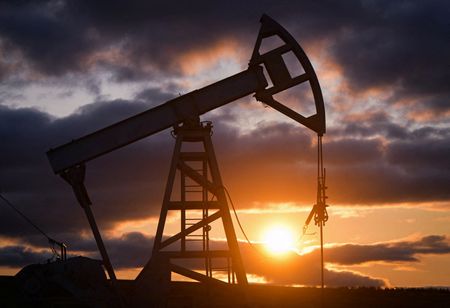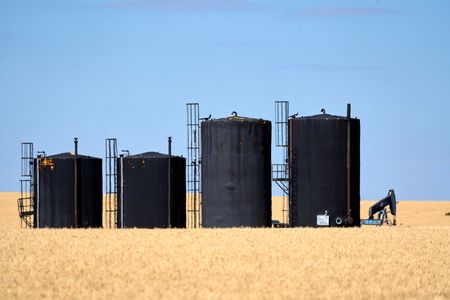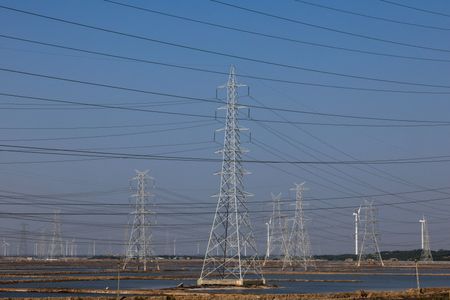By Ashitha Shivaprasad and Emily Chow
SINGAPORE (Reuters) -Oil prices dipped on Tuesday as supply concerns eased with the resumption of loadings at a Russian export hub, briefly halted by a Ukrainian drone and missile strike, while traders continued to assess the impact of Western sanctions on Russian flows.
Brent crude futures were down 46 cents, or 0.72%, at $63.74 a barrel, as of 0420 GMT. U.S. West Texas Intermediate (WTI) crude futures were down 45 cents, or 0.75%, at $59.46 a barrel.
Russia’s Novorossiysk port resumed oil loadings on Sunday following a two-day suspension triggered by a Ukrainian missile and drone attack, according to two industry sources and LSEG-compiled data.
Crude oil is trading marginally lower “as reports indicate that loadings have resumed sooner than expected at Novorossiysk,” IG analyst Tony Sycamore wrote in a note.
Exports from Novorossiysk and a nearby Caspian Pipeline Consortium terminal, together representing about 2.2 million barrels per day, or roughly 2% of global supply, were halted on Friday, pushing crude up more than 2% that day.
Traders are now refocusing on the longer-term impact of Western sanctions on Russian oil flows.
The U.S. Treasury said sanctions imposed in October on Rosneft and Lukoil are already squeezing Moscow’s oil revenues and are expected to curb Russian export volumes over time.
ANZ Research said in a note that Moscow’s crude has begun trading at a significant discount to global benchmarks.
“Market worries centre around the build-up of oil on tankers as buyers assess the risk of potentially breaching sanctions,” said Vivek Dhar, mining and energy commodities strategist at Commonwealth Bank of Australia, but added that history has shown Russia’s ability to adapt to sanctions.
“We expect any disruption from U.S. sanctions will prove temporary as Russia finds ways to circumvent sanctions once again.”
A senior White House official said U.S. President Donald Trump is willing to sign Russia sanctions legislation as long as he retains final authority over its implementation. Trump said on Sunday that Republicans are drafting a bill to sanction any country doing business with Russia, adding that Iran could also be included.
Oil prices are expected to decline through 2026, Goldman Sachs said on Monday, citing a big supply wave that keeps the market in surplus. However, it noted that Brent could rise above $70 a barrel in 2026/2027 if Russian output falls more sharply.
(Reporting by Ashitha Shivaprasad in Bengaluru and Emily Chow in Singapore; Editing by Sherry Jacob-Phillips)











